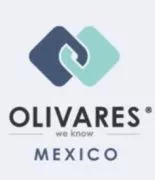Among the most relevant changes in this new Federal Law for the Protection of Industrial Property in Mexico is the one contained in Article 214 (formerly 113 of the former Industrial Property Law), which stipulates additional requirements for the filling forms when submitting a new trademark application, such as "the description of the mark" and Article 216 which stipulates that "the graphic elements that are not part of the mark must be indicated by dashed or dotted lines on its representation". These new requirements will be applicable for trademarks filed from November 5, 2020.
It is particularly significant that it is now necessary to indicate "the description of the trademark" because since 2018 the trademark Law has recognized "non-traditional" marks such as olfactory and sound marks, as well as certain animated marks, holograms and "trade dress." New trademark figures will require a more detailed description and possible precision in order to comply with the new law.
These modifications to the trademark law seek to define and limit the scope of protection for trademarks to avoid confusion regarding what is part of the distinctive sign, along with updating the system for the protection of distinctive signs through the implementation of the new provisions.
Another significant change included in the new Federal Law for the Protection of Industrial Property is that the validity of a trademark registration, as well as for a slogan or a tradename, will be 10 years as of the date of grant, while in the previous Law, their validity was 10 years as of the filing date.
The aforementioned amendment will only be applicable to trademarks, slogans and tradenames, filed as of November 5, 2020.
Trademark registrations, slogans, and tradenames will be valid for a ten-year period, which will be renewable for periods of the same length, such as in the previous Law. The renewal applications for registered trademarks must be filed along with the corresponding Declaration of Use (DOU), by which the titleholder of the registration of interest declares under oath that the same (trademark, slogan or/and tradename) is actually in use in Mexico.
Among other things, this new Law establishes that if the DOU was not filed along with the renewal application of the registration of interest, the Trademark Office will issue an Official Action, by which they request the titleholder of the registration to file the corresponding DOU within the next two months.
This change is especially relevant for the trademark registrations obtained by means of The Madrid Protocol, since the renewal application form used in The Madrid System does not includes the DOU, resulting in uncertainty regarding the term to file the DOU for national registrations. Nevertheless, now that the Trademark Office will issue an Official action for these registrations, the titleholders will be certain about which date they should file the corresponding DOU.
Another important amendment is that when the renewal application is filed by a lien beneficiary, which is recorded at the Trademark Office, the filing of a DOU will not be necessary.
The importance of this is that the Trademark Office gives the power to the beneficiary of the security interest over whether to file the renewal application of a registered trademark, slogan and/or tradename, in order to assure their rights as the beneficiary of the security interest.
The new IP Law also establishes that the products or services, which are covered by the trademark, slogan and/or tradename, are free from deceit and bad faith. The previous IP Law did not make any distinction regarding this issue.
The foregoing is extremely important since the titleholder is obliged to make that declaration under oath, and in the event that, knowing this, the owner of the application in process or of a registration already granted, has done so with deceit and in bad faith, it can be cause of nullity.
The content of this article is intended to provide a general guide to the subject matter. Specialist advice should be sought about your specific circumstances.


